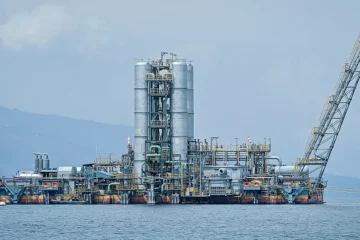In a haunting reminder of the human cost of migration, the Senegalese navy intercepted 201 migrants attempting to cross the Atlantic Ocean toward Europe, highlighting the growing desperation of West Africans risking their lives for a better future.
The operation, carried out by naval forces stationed in the town of Foundiougne in the Fatick region, stopped 69 people on land and another 132 aboard a small wooden boat in the Saloum delta on Tuesday evening, the army confirmed in a statement. Among those intercepted were women and children, silent testimonies of how entire families are now braving what is known as the world’s deadliest migration route.
The Atlantic corridor from West Africa to Spain’s Canary Islands has seen a dramatic rise in traffic. Nearly 47,000 people arrived on the islands in 2024 alone, up from nearly 40,000 the previous year, despite intensifying patrols and European funding to stem the flow. Migrants are driven by deep-rooted economic despair, social instability, and the growing perception that hope lies only beyond Africa’s shores.
“People are not just fleeing hunger or conflict anymore,” said an aid worker in Dakar. “They are fleeing hopelessness. When even children and mothers get on those boats, it tells you something has collapsed at home.”
The Saloum delta, a UNESCO-recognized biosphere reserve once celebrated for its fishing traditions and ecological diversity, is now turning into a launch-pad for desperate voyages. Smugglers exploit its winding waterways and isolation to avoid detection. Many vessels vanish at sea, swallowed by the vast Atlantic or found months later on distant Caribbean or Latin American shores, often containing only human remains.
Despite a €210 million agreement signed last year between the European Union and Mauritania to curb illegal departures, migration via this route continues unabated. Observers say the deal has done little to address the root causes or to offer dignified alternatives.
“This is not just a border control issue,” said a regional policy analyst. “It is a development failure. Until our youth believe they have a future here, the ocean will keep calling them.”
While the Senegalese authorities continue to tighten maritime surveillance, the deeper question looms: what future can Africa offer its restless, ambitious youth? In communities across West Africa, families now live with a dual hope that loved ones might reach Europe alive, or at least be intercepted before it’s too late.
The intercepted migrants are currently under the care of Senegalese authorities. But for many, this failed attempt is only a pause in a longer, more perilous journey.








